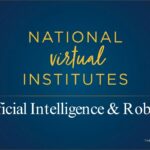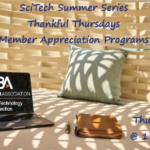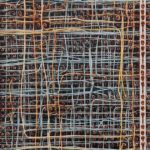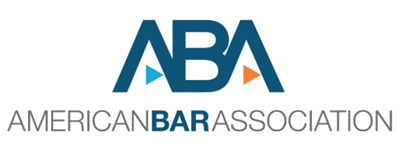Looking for new opportunities? An interactive session designed to offer insights into what it takes to launch a consulting practice and persevere. This is intended for engineers and managers who are considering a change to consulting. The panel will share their personal experience and their view on the current conditions for engineering teams in Silicon […]

Rafael "RAFA" BACA, ESQUIRE
US Patent Attorney & Software Developer
Rafa has decades of experience as a Federal Regulatory and Tech lawyer, a Registered US Patent and IP lawyer that includes a depth of experience in complex commercial litigation, legal transactions, business intelligence, tradesecrets, patent prosecution, and global asset portfolio strategy and regulatory work in tech and engineering. He is an active speaker in Software & Technology legal matters, GDPR Data Privacy regulations and a national expert in Artificial Intelligence and Big Data and international law as the Chair of the American Bar Association (ABA) ’s AI committee.
Over the years, Rafa worked in patent litigation management; patent prosecuting in software, decentralized and cryptographic computing, as well as telecom and wireless systems; in-house patent transactional experience; international licensing and IP valuation, large firm litigation experience, and originally worked in the Examining Corps in the United States Patent & Trademark Office in Medical Devices.
Rafa Baca first became interested in decentralized computing and software development at Stanford University’s Bitcoin Edge Initiative and has never looked back. Rafa is passionately interested in applying the artificial intelligence, natural language processing and decentralized computing to novel software development use case applications.
His experience uniquely bridges the divide between the digital and real world applications with a focus on regulation and policy, business and software development. As a software developer in Silicon Valley, Rafa has successfully lead a team of software engineers and lawyers to create a software system for worldwide multilingual business contracts by using artificial intelligence to automate risk aversions while in-house legal and sales teams draft sales contracts. Further, Rafa is an experienced San Francisco FinTech entrepreneur and Angel Investor.
Rafa has a JD (law degree), MS in Computer Science (Data Science) and BS in Mechanical Engineering. Some academic honors include Tau Beta Pi (Engineering Honor Society), Kappa Mu Epsilon (Math Honor Society) & Senior Editor of the Law Review. Rafa is a passionate software developer, digital forensics investigator, as well as a member of the Stanford Blockchain group and San Francisco Legal Hackers. As a dual citizen of the USA and a naturalized citizen of Spain (EU) , Rafa is well versed with the EU’s General Data Protection Regulation (GDPR) and is thus legally equipped to act as an ideally knowledgeable US-Based Data Protection Officer under the EU’s GDPR while in sensitive data breach matters requiring lawyer-client privilege. Rafa is fluent in Spanish and a member of the USPTO, Texas and New Mexico Bars.
Recent Posts by Rafael Baca
Meetup: Wed, Nov 18, 7pm – DIGITAL DEPUTY ACT: A commitment to digital ethics by Software Professionals
Responsive to the DigitalDeputyAct.Org website, this lecture focuses on just one practical approach of many concerted approaches toward enforcing digital ethics in software development – The DIGITAL DEPUTY ACT which seeks to promote digital ethical practice by expanding California State Licensing of Professional Engineers to further include the Optional State Professional Licensing of Software Professionals. The Digital […]
Without a Trace: Where Is Digital Data Privacy When Conducting COVID-19 Contact Tracing?
A review of how digital contact tracking works, what privacy laws apply and how can policyfoster privacy-protective deployment and Case Studies American Bar Association, National Virtual Institutes, Artificial Intelligence and Robotics, “Without a Trace: Where is Digital Data Privacy when Conducting COVID-19 Contact Tracing?”, September 30, 2020. View the pdf here
Model Ethics Rules as Applied to Artificial Intelligence
Today, the public hears more and more of what artificial intelligence (AI) can do in the real world—things that are tangibly beyond encounters with robots or androids portrayed in popular science fiction movies and novels. Today, many people think AI is for simple tasks, like using voice commands to call a friend or purchase household goods from online retailers. But AI also is detecting cancer better than photographic slide pathologists, and governments are applying AI to detect specific individuals who are violating COVID-19 quarantine.
COVID-19 Contact Tracing in a Democracy: Balancing Public Health and Privacy
Striking a balance in a vibrant democracy will require rethinking both privacy and the public health technique of contact tracing legally and technically for the 21st Century.Authored and presented by Rafael Baca as a co-presenter on July 16th, 2020 as part of the Summer SciTech Series sponsored by the Science and Technology Section of the […]
Is there a way to search for provisional patents?
Generally, provisional patent applications are never officially published by the U.S. Patent Office and most other patent offices. However, their subsequent, corresponding non-provisional patent applications may be published. As such, a published non-provisional application or issued patent may make reference to a provisional application by title, assigned serial (government reference) number for the application, and […]








